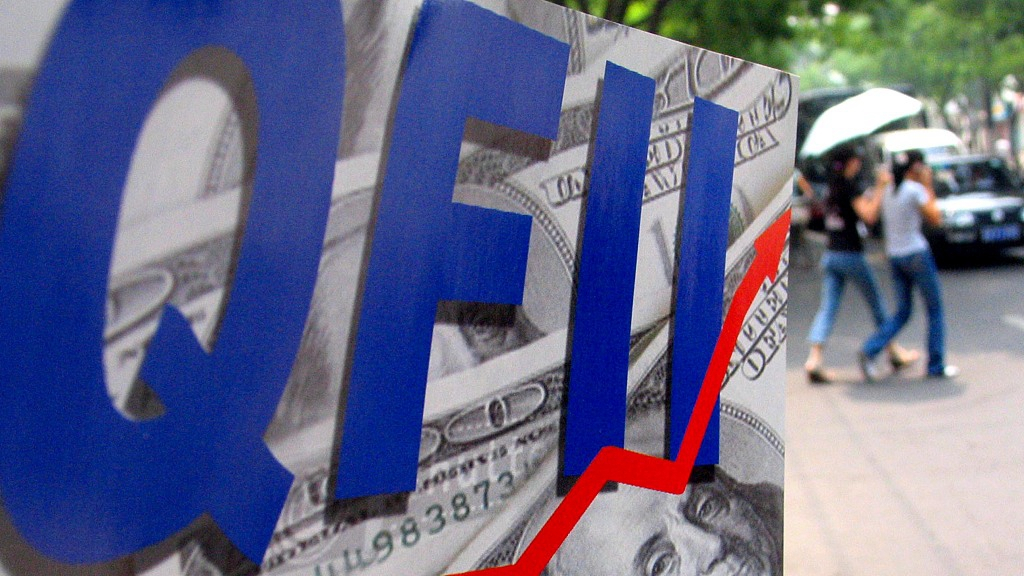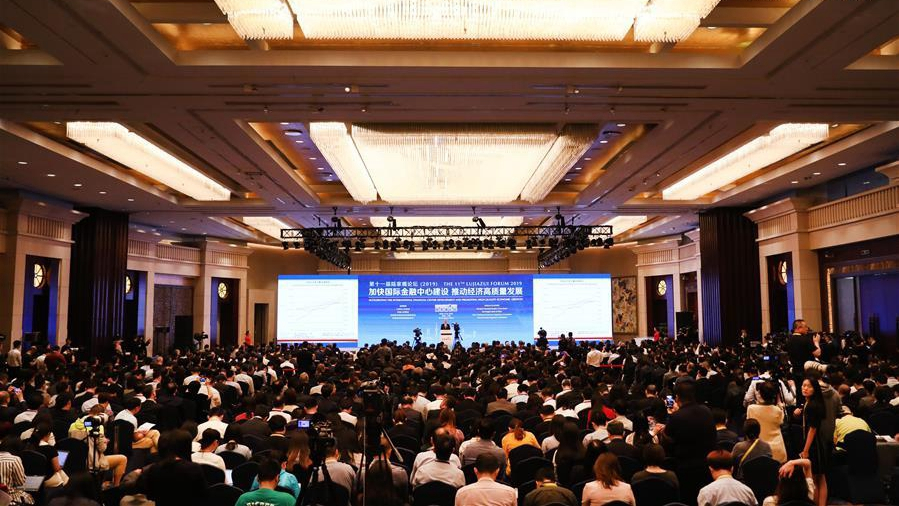

China's top securities regulator announced Thursday at the Lujiazui Forum in Shanghai that the country will soon unveil a series of measures to further open up its capital markets.
These will include amendments to the Qualified Foreign Institutional Investors (QFII) scheme and the yuan-denominated RQFII scheme to facilitate more overseas participation in the capital markets, said Yi Huiman, chairman of the China Securities Regulatory Commission.
The country vowed to ease restrictions on overseas banks' access to the securities investment fund custodian business and to further open up the futures market.
China will allow private equities by overseas fund managers to trade Hong Kong-listed stocks via the stock connect program and facilitate the issuance of yuan-denominated Panda bonds by overseas institutions, Yi said.
He said the country also plans to expand overseas institutional investors' access to the exchange bond market.

The 11th Lujiazui Forum 2019 is held in Shanghai, east China, June 13, 2019. /Xinhua Photo
QFII quota management may eased and even canceled
China will properly ease and even cancel quota management for Qualified Foreign Institutional Investors (QFII) in a bid to further widen investment scope for overseas investors, said China's forex regulator at the forum.
There is relatively large room for the growth of overseas investors in China's capital markets as their proportion is still low, said Pan Gongsheng, deputy governor of the People's Bank of China.
The country will continue to advance the two-way opening-up of its capital markets, said Pan, who is also head of the State Administration of Foreign Exchange.
Since the beginning of this year, net purchases of domestic bonds by foreign investors reached 500 billion yuan (about 72.6 billion U.S. dollars), according to Pan.
The demands of overseas investors to hold yuan-denominated assets remain very strong as the Chinese economy has been operating steadily with a more mature forex market, he added.
The QFII program, introduced in 2003, allows overseas institutional investors to move money into China's capital account for investment.
Continuing improvement of risk monitoring and warning mechanisms
While further opening up the capital markets, the country will continuously improve its risk monitoring and warning mechanisms to prevent imported risks, maintain the order of cross-border investment activities and hold to the bottom line that no systemic financial risks should occur, Yi said.
At the forum, the country announced the launch of its science and technology innovation board, kicking off its much-anticipated capital market reform this year.

Copyright © 2018 CGTN. Beijing ICP prepared NO.16065310-3
Copyright © 2018 CGTN. Beijing ICP prepared NO.16065310-3